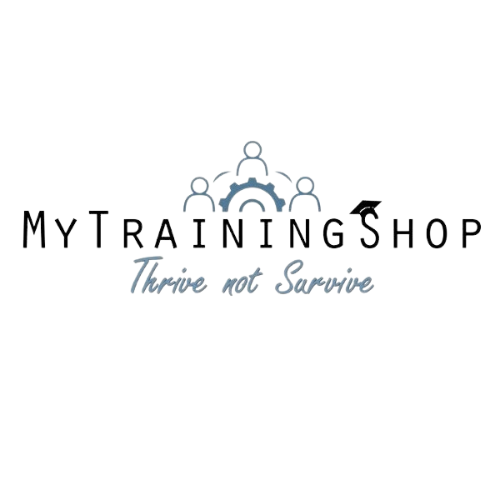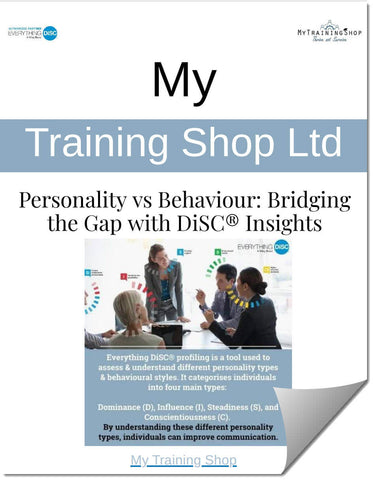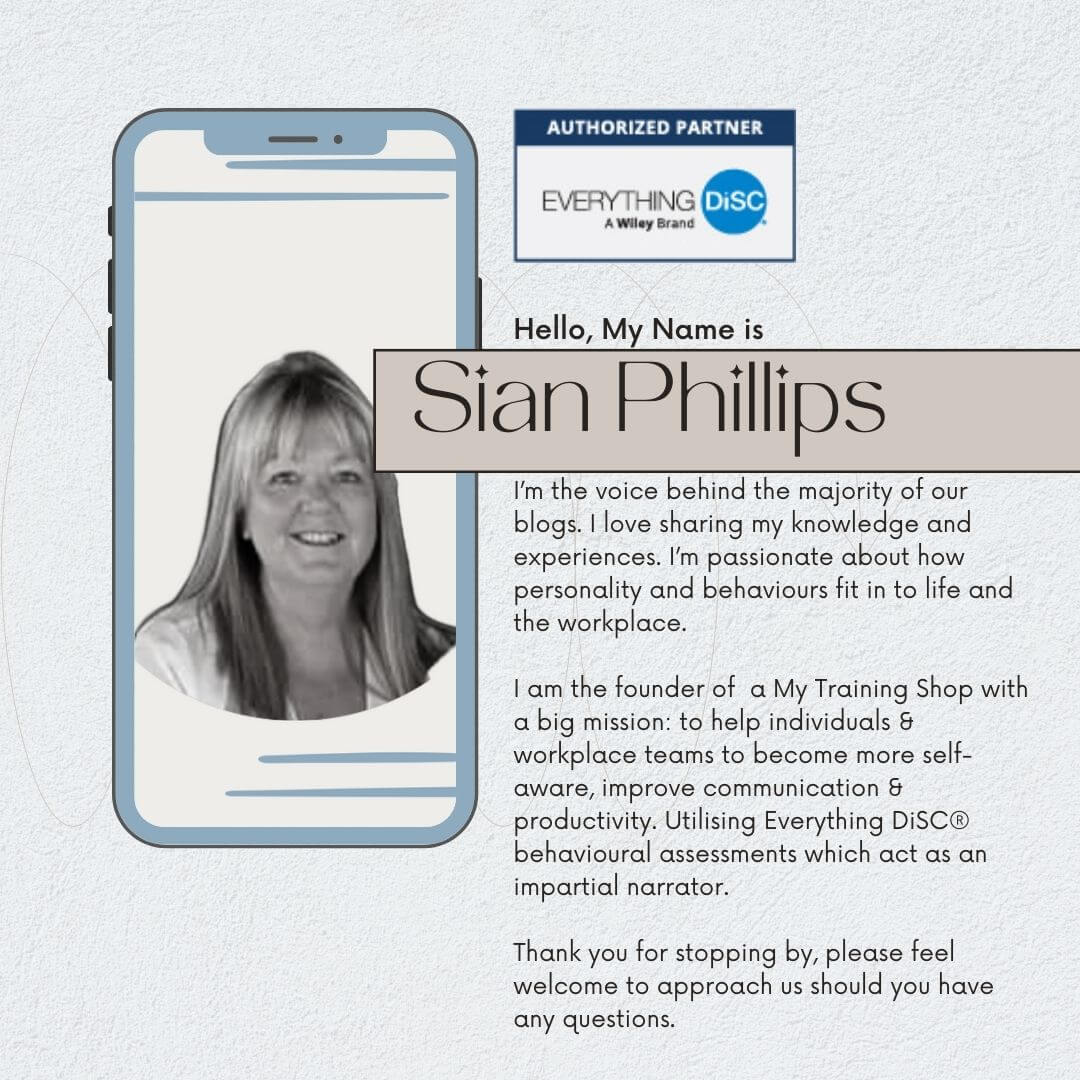Personality vs Behaviours
Have you ever wondered what makes you unique? Is it your personality, your behaviours, or a combination of both?
Like many people, I have been intrigued by the reasons behind my thoughts and opinions. Through career profiling and participating in driver behaviour profiling as part of my blue light training course, I embraced discovering more about myself (and others) Taking quizzes on learning types and leadership further piqued my interest in profiling and helped me raise my self-awareness in how I interact with others.
Many people turn to personality quizzes to gain insights into their characteristics and those of others. While these quizzes can be entertaining, it's essential to understand the difference between personalities and behaviours.
My interest in profiling and self-awareness led me to research and test various psychological profiling instruments. After careful consideration, I decided to invest in John Wiley & Sons Everything DiSC® behavioural reporting.
At My Training Shop, we specialise in Everything DiSC® behavioural profiling reports, which help individuals and organisations better understand and leverage the link between behaviours and personality.

Defining Personality and Behaviour
To grasp the relationship between personalities and behaviours, let's first define each concept:
-
Personality: Personality refers to the unique set of characteristics, thought patterns, emotions, and behaviours that define an individual. It is relatively stable over time and across different situations.
Personality encompasses traits such as extraversion, introversion, openness, conscientiousness, agreeableness, and neuroticism. These traits are often determined by a combination of genetic factors and early life experiences.
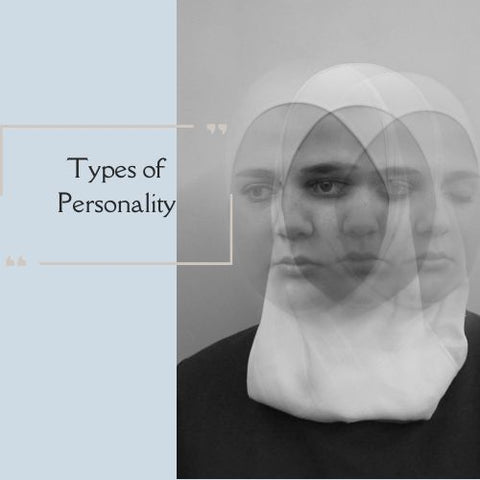
-
Behaviour: On the other hand, behaviour is how an individual acts or conducts themselves in response to a particular situation or stimulus.
Behaviours can vary depending on the context and can be influenced by factors such as personality, environment, and past experiences. Behaviours are observable actions that can be seen, recorded, and analysed.
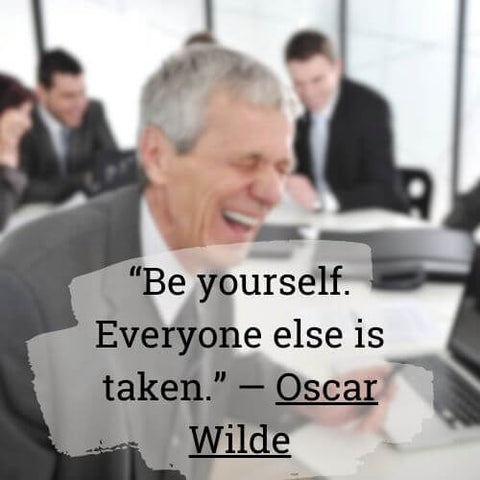
In essence, personality is the underlying driver of behaviour, while behaviour is the observable manifestation of personality.
The Link Between Personality and Behaviour
While personality and behaviour are distinct concepts, they are closely intertwined. Our personality traits influence how we perceive and interact with the world, shaping our behavioural patterns. For example, someone with an extroverted personality may exhibit behaviours such as being talkative, sociable, and energetic in social situations. They may seek opportunities to engage with others and thrive in group settings. On the other hand, someone with an introverted personality may display behaviours like being reserved, reflective, and preferring solitude. They may find social interactions draining and need time alone to recharge.
It's important to note that while personality is relatively stable, behaviours can be adapted and modified based on the demands of a given situation. An introvert, for instance, may learn to behave more extroverted in certain professional settings to meet job requirements or social expectations.
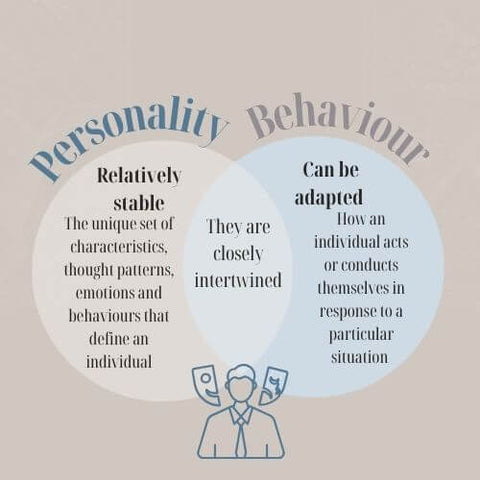
However, this may require conscious effort and energy, which goes against their natural inclinations.
The Role of Personality Quizzes
Personality quizzes have gained popularity as tools for self-discovery and understanding others. These quizzes often categorise individuals into different personality types based on their responses to questions. Some well-known personality frameworks include:
- Myers-Briggs Type Indicator (MBTI): The MBTI categorises individuals into 16 different personality types based on their preferences across four dimensions: extraversion vs. introversion, sensing vs. intuition, thinking vs. feeling, and judging vs. perceiving.
- Big Five Personality Traits: Also known as the OCEAN model, this framework assesses individuals on five broad dimensions: openness, conscientiousness, extraversion, agreeableness, and neuroticism.
- Enneagram: The Enneagram identifies nine distinct personality types, each with motivations, fears, and behavioural patterns.
While personality quizzes can provide valuable insights, it's crucial to approach the paper and magazine-type tests with a grain of salt. These quizzes are not always scientifically validated and may not capture the full complexity of an individual's personality. Additionally, people may answer questions based on their self-perception or desired traits rather than their actual characteristics.

The Everything DiSC® Approach
At My Training Shop, we utilise the Everything DiSC behavioural profiling system to help individuals and organisations understand and leverage the connection between personality and behaviour.
Everything DiSC is a scientifically validated assessment that measures an individual's preferences and tendencies across four main dimensions:
- Dominance (D): Individuals with a high D style tend to be direct, decisive, and results-oriented. They focus on achieving goals, taking action, and challenging the status quo.
- Influence (i): Those with a high i style prioritise relationships, influence others through communication skills, and are often enthusiastic and persuasive.
- Steadiness (S): Individuals with a high S style value consistency, stability, and harmony. They are patient, accommodating, and prioritise supporting others.
- Conscientiousness (C): Those with a high C style are analytical, detail-oriented, and focused on accuracy and quality. They are systematic, and cautious, and value data-driven decision-making.
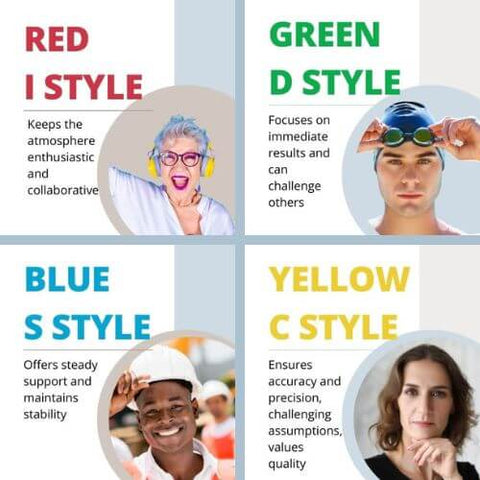
By identifying an individual's primary DiSC style, we can gain insights into their behavioural preferences and how they are likely to respond in various situations. This knowledge can be applied to improve communication, teamwork, leadership, and overall organisational effectiveness.
Understanding the DiSC styles of others allows us to adapt our own behaviour to better connect and collaborate with them.
Applying Behavioural Insights in the Workplace
Understanding the link between personalities and behaviours is particularly valuable in the workplace. By recognising the diverse behavioural styles of team members, managers can:
-
Tailor their communication and feedback to resonate with each individual: Managers can adapt their communication style to match the preferences of their team members. For example, managers can be direct and focused on results when communicating with a high-D-style individual. In contrast, with a high S-style individual, they may need to provide more support and reassurance.
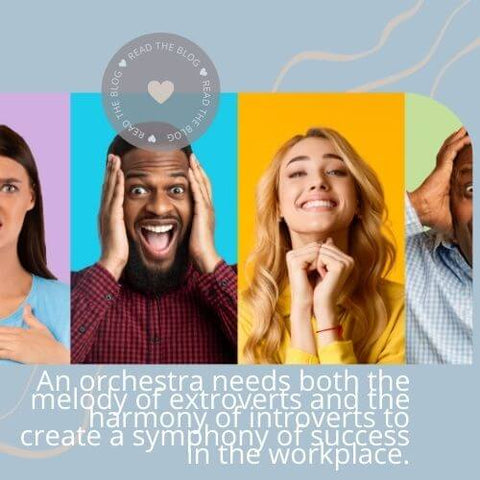
- Assign tasks and roles that align with each person's natural strengths: By understanding team members' behavioural preferences, managers can allocate tasks and roles that play to their strengths. For instance, a high i style individual may thrive in a customer-facing role that allows them to utilise their communication and interpersonal skills.
- Foster a more harmonious and productive work environment: When team members understand and appreciate the different behavioural styles within the team, they can work together more effectively. They can learn to leverage each other's strengths, communicate in ways that resonate with one another, and minimise conflict arising from misunderstandings.
Through Everything DiSC® training and workshops, teams can learn to appreciate and leverage their differences, leading to improved collaboration and performance.

They can develop a common language to discuss their behaviours and preferences, fostering greater understanding and empathy.
While personality quizzes can be fun and informative, it's essential to understand the distinctions between personalities and behaviours. Personality is the underlying driver, while behaviour is the observable manifestation. The Everything DiSC behavioural profiling system offers a scientifically validated approach to understanding and applying the link between personality and behaviour in personal and professional settings.
At My Training Shop, we are committed to helping individuals and organisations harness the power of behavioural insights through our Everything DiSC® reports and training programmes.
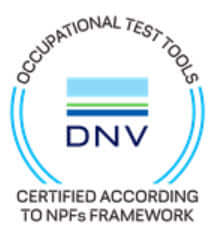
By gaining a deeper understanding of ourselves and others, we can build stronger relationships, enhance communication, and create more effective and empowering work environments.
FREE Download Personality Vs Behaviour
Want to find out more? Get in touch
or
Email: help@mytrainingshop.co.uk
© Sian

